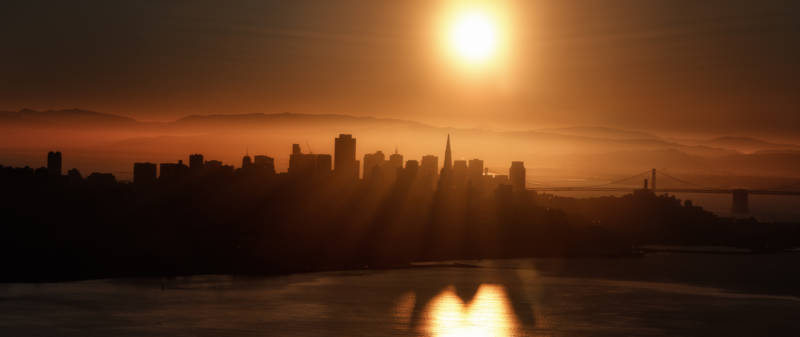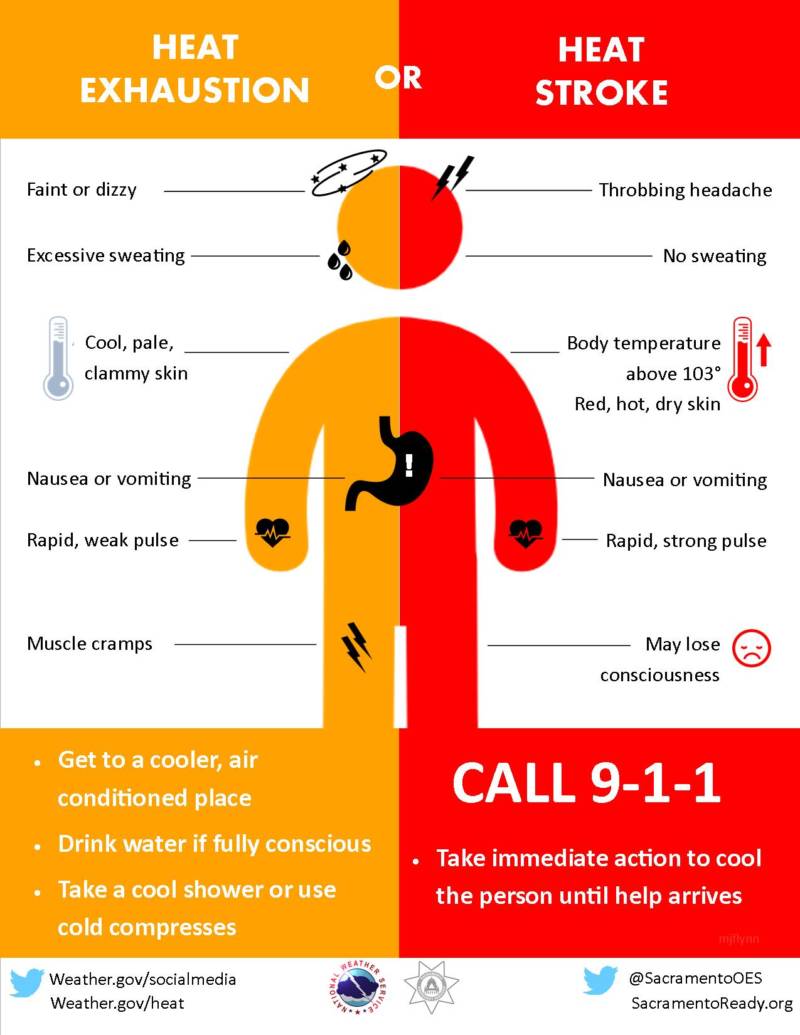After a relatively mild July, a potentially dangerous heat wave is expected to descend across a vast swath of East Bay and Central California cities and towns this weekend. The National Weather Service (NWS) has issued a heat advisory for the East Bay inland hills and valleys from Concord to Livermore; the I-80 corridor from Vallejo out past Sacramento into El Dorado County; and for the 450-mile stretch between Bakersfield and Redding.
Weather officials expect the heat to start up Saturday morning by 11, and last through 11 p.m. Sunday. With temperatures reaching 105 degrees in the East Bay and 109 degrees in the Central Valley, NWS meteorologist Spencer Tangen says people need to be ready.
“They’ll have to watch out for these hot temperatures,” he said, “and think about what they can do to prepare for them.”
Widespread 90s and 100s are forecast this afternoon across inland valleys and interior locations 🌡️. Stay safe out there, and #BeatTheHeat! #CAwx #CAheat pic.twitter.com/h7pRWiateN
— NWS Bay Area (@NWSBayArea) July 27, 2019
Tangen says it’s important to stay hydrated, reschedule any outside work or exercise to the morning if possible, and avoid high midday temperatures.
People without access to air conditioning or a pool can find themselves in a dangerous situation.
A KQED investigation of home temperatures in Antioch and other places around the Bay Area last summer found that staying inside all day and night in a home without air conditioning can be the worst thing to do in a heat wave; every home we measured stayed hotter inside than outside — as much as 15 to 20 degrees hotter. And they stayed hot well into the night, when people’s bodies need to cool off to prevent heat from building up.
To protect yourself, seek out public areas with air conditioning such as malls, grocery stores or libraries, and check out this list of cooling centers near the Bay Area.


